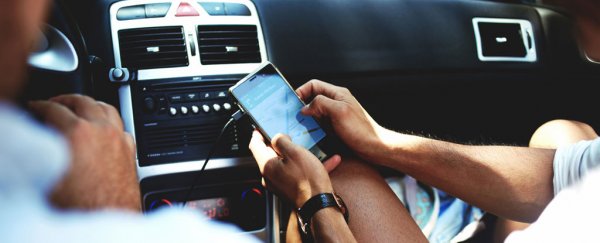If you've ever noticed that finding your way somewhere using a smartphone or GPS device makes it harder to remember where you've been or how you got there, you're not alone.
According to satellite navigation (satnav) expert Roger McKinlay, the former president of the Royal Institute of Navigation in the UK, this often happens when people rely on electronic devices to tell them where to go, rather than using their memory or figuring out the route on a good, old-fashioned map.
And unfortunately, the effect isn't just a one-off. In a newly published commentary in Nature, McKinlay suggests that our natural sense of navigation is a 'use-it-or-lose-it' ability, with our skill at finding our way around diminishing over time if we constantly outsource the responsibility to machines.
"[W]e should make better use of our innate capabilities," McKinlay writes. "If we do not cherish them, our natural navigation abilities will deteriorate as we rely ever more on smart devices."
It's not an unsubstantiated warning either. Research involving taxi drivers in 2009 found that when active drivers were compared to former taxi drivers, the latter group performed worse in navigation tests.
"What we did was to look at a set of current London taxi drivers and a set of London taxi drivers that had [been] retired for about four years" neuroscientist and study author Hugo Spiers from University College London told Nicola Davis at The Guardian. "We were able to show that their abilities did drop away if they weren't using their knowledge on that particular test."
And keeping up those skills doesn't just help us find our way around more easily – it changes the way our brains work. Previous research by Spiers also examined the brains of London taxi drivers, this time comparing them with those of the city's bus drivers.
The team found that the part of the hippocampus related to spatial representation was larger in the taxi drivers' brains than in the bus drivers'. The idea is that the bus drivers relied less on their internal navigation abilities as a result of being continually obliged to drive only constrained routes.
But there appear to be limits on how much spatial navigation memory we can store. In the study, the bus drivers performed better at acquiring new visuospatial data, which suggests that the taxi drivers' established knowledge of London's roadways left little room to learn new navigational information.
Warnings like McKinlay's are nothing new, of course. Experts have been telling us for years how over-reliance on smart devices and the Internet is affecting our memory and perception.
Still, it's a timely reminder that it might be a good idea to give your internal navigation senses a bit of a workout every now and then, simply by heading out the door and plotting your route somewhere the old-fashioned way. Who knows? You might even find yourself having fun.
